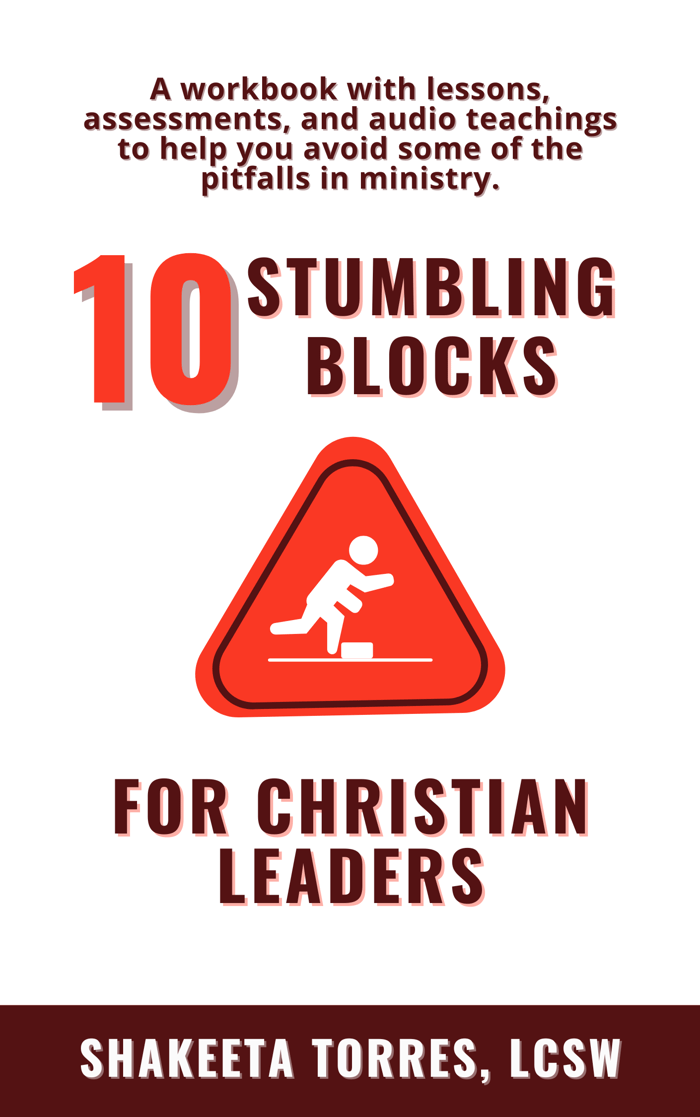Table of Contents
Setting Healthy Boundaries: A Christian Leader’s Guide
Setting Healthy Boundaries: A Christian Leader’s Guide
As a Christian leader, you have been entrusted with the responsibility of guiding, inspiring, and serving those under your care. Whether you are a pastor, ministry leader, counselor, or teacher, your role demands wisdom, patience, and unwavering faith. However, without proper boundaries, the weight of leadership can become overwhelming, leading to burnout, frustration, and even strained relationships.
Setting healthy boundaries is essential—not only for your personal well-being but also for your ability to lead effectively. When you establish firm yet compassionate boundaries, you model self-respect, stewardship of time and energy, and trust in God’s plan. The Bible provides numerous principles on the importance of setting limits and prioritizing what truly matters. In this guide, we will explore practical steps for setting healthy boundaries as a Christian leader, all while drawing wisdom from Scripture.
1. Seek Wisdom from Scripture
The Bible is the ultimate source of guidance when it comes to living a life that honors God. Scripture provides wisdom on how to establish boundaries that align with His will.
Proverbs 4:23 (NIV) says, “Above all else, guard your heart, for everything you do flows from it.” This verse reminds us that our spiritual, emotional, and mental well-being must be protected. If our hearts and minds are overwhelmed with stress, people-pleasing, and exhaustion, we cannot effectively serve others.
Jesus Himself demonstrated the importance of setting boundaries. In Luke 5:16 (NIV), it is written, “But Jesus often withdrew to lonely places and prayed.” Even amid His busy ministry, Jesus prioritized time alone with the Father. This shows us that setting aside time for spiritual renewal is not selfish but necessary.
2. Understand Your Role and Limitations
As a leader, it is important to have a clear understanding of your role and what God has called you to do. Often, leaders take on more responsibilities than they can handle, thinking they must always be available. However, even Moses had to learn that leadership should be shared.
In Exodus 18:17-18 (NIV), Jethro, Moses’ father-in-law, advised him: “What you are doing is not good. You and these people who come to you will only wear yourselves out. The work is too heavy for you; you cannot handle it alone.”
Moses was trying to judge and lead the people of Israel alone, but Jethro encouraged him to delegate responsibilities. This is an important lesson for leaders today—you cannot do everything by yourself. Recognize your strengths and limitations and trust God to provide others to support the work.
3. Prioritize Spiritual and Emotional Self-Care
Many Christian leaders feel guilty about prioritizing self-care, thinking that they must always be available for others. However, failing to care for yourself can lead to exhaustion and diminished effectiveness.
Mark 6:31 (NIV) says, “Come with me by yourselves to a quiet place and get some rest.” Jesus told His disciples to step away and rest because He knew that constant labor without renewal leads to burnout.
Your spiritual self-care should include:
• Daily prayer and meditation on God’s Word
• Time spent in worship and reflection
• Seeking counsel and mentorship from other mature believers
• Allowing yourself time to rest and recharge
By prioritizing your own well-being, you set an example for your congregation or those you lead, demonstrating that self-care is not selfish but a biblical principle.
4. Clearly Define Your Boundaries
Boundaries clarify what you will and will not tolerate, helping prevent overcommitment and stress. Take time to write down clear boundaries regarding:
• Time: When are you available for ministry? When do you rest?
• Workload: What responsibilities are realistic for you? What can you delegate?
• Personal Space: How do you balance ministry and family time?
• Spiritual Life: How do you protect your prayer and study time?
2 Corinthians 6:14 (NIV) states, “Do not be yoked together with unbelievers.” While this verse primarily speaks of spiritual partnerships, it also emphasizes the importance of discernment in our commitments. We must be careful about who and what we align ourselves with, ensuring that our time and energy are used wisely.
5. Communicate Your Boundaries with Love and Clarity
Many leaders fear that setting boundaries will offend others, but when communicated correctly, boundaries can foster respect and understanding.
Ephesians 4:2 (NIV) instructs us, “Be completely humble and gentle; be patient, bearing with one another in love.” Boundaries should be expressed with humility, not as rigid demands, but as necessary guidelines for healthy relationships and effective leadership.
When discussing boundaries, consider using phrases like:
• “I appreciate your request, but I won’t be available during that time.”
• “For the sake of my family and my well-being, I need to set some limits on my availability.”
• “I value our relationship, but I can only commit to what I can handle well.”
By setting expectations early and clearly, you minimize misunderstandings and promote a culture of mutual respect.
6. Enlist Accountability Partners
Accountability is essential for maintaining healthy boundaries. Proverbs 27:17 (NIV) says, “As iron sharpens iron, so one person sharpens another.” A trusted mentor, friend, or fellow leader can help keep you accountable to the boundaries you set.
Surround yourself with individuals who will:
• Encourage you to stay true to your commitments
• Check in on your spiritual, emotional, and physical health
• Provide wisdom when you struggle with overcommitment
Having accountability partners ensures that you remain steadfast in maintaining the balance God desires for you.
7. Learn to Say No Without Guilt
One of the hardest things for Christian leaders to do is say no. The desire to help and serve often leads to overcommitment. However, Galatians 1:10 (NIV) reminds us, “Am I now trying to win the approval of human beings, or of God? Or am I trying to please people? If I were still trying to please people, I would not be a servant of Christ.”
Saying no does not mean rejecting others—it means prioritizing what God has called you to do. You are not called to do everything, and by saying no when necessary, you allow space for others to step up and serve.
Final Thoughts
Setting healthy boundaries as a Christian leader is not just important—it is a biblical necessity. Without boundaries, your leadership can suffer, your spiritual life can weaken, and your relationships can become strained. However, by seeking wisdom from Scripture, understanding your role, prioritizing self-care, defining and communicating your boundaries, seeking accountability, and learning to say no, you can lead with integrity and endurance.
Your calling is important, and God desires for you to serve with strength and joy, not exhaustion and resentment. Embrace the wisdom of healthy boundaries, and you will find that your leadership becomes more effective, your faith deepens, and your ministry thrives.
If you are looking for further guidance on Christian leadership, check out the resources below!
Click on the image below to learn more!
FAQs
1. Why are boundaries important for Christian leaders?
Boundaries are essential for Christian leaders because they help maintain spiritual, emotional, and physical well-being while ensuring long-term ministry effectiveness. Without boundaries, leaders risk burnout, stress, and strained relationships. Proverbs 4:23 (NIV) reminds us, “Above all else, guard your heart, for everything you do flows from it.” Setting boundaries allows leaders to protect their heart, prioritize their God-given calling, and serve with wisdom and endurance.
By implementing clear boundaries around time, responsibilities, and personal life, leaders can sustain their ministry, foster healthy relationships, and remain focused on what truly matters—fulfilling God’s purpose without feeling overwhelmed.
2. How can Christian leaders set biblical boundaries without feeling guilty?
Christian leaders often struggle with guilt when setting boundaries, fearing they will disappoint others. However, Jesus Himself demonstrated the importance of boundaries by taking time for rest and prayer (Luke 5:16). Leaders must recognize that saying “no” is not rejecting people—it’s prioritizing God’s will over people-pleasing.
To set biblical boundaries without guilt:
• Pray for wisdom and clarity about what God is calling you to do.
• Communicate boundaries with love and humility (Ephesians 4:2).
• Trust that God will provide others to step in where you cannot.
• Remember that your first responsibility is to steward your time, health, and relationship with God.
Boundaries help leaders stay effective and available for what truly aligns with their divine purpose.
3. What are some practical examples of boundaries Christian leaders should set?
Setting clear and practical boundaries helps Christian leaders avoid burnout and maintain a balanced life. Here are a few key areas to establish boundaries:
• Time Management: Setting office hours for meetings, counseling, and church responsibilities while protecting personal and family time.
• Spiritual Renewal: Prioritizing daily prayer, Bible study, and Sabbath rest to maintain a strong relationship with God.
• Workload Balance: Delegating tasks and responsibilities to avoid carrying all burdens alone (Exodus 18:17-18).
• Personal Relationships: Limiting accessibility during off-hours and ensuring family and personal time are not constantly interrupted.
• Ministry Commitments: Knowing when to say “no” to additional responsibilities that do not align with God’s calling for your life (Galatians 1:10).
By setting these boundaries, leaders create sustainable ministry practices that honor God while maintaining their own well-being.
4. How can Christian leaders effectively communicate their boundaries?
Communicating boundaries effectively requires a balance of clarity, humility, and love. The Bible teaches in Ephesians 4:15 to “speak the truth in love.” Here are some practical ways to communicate boundaries as a leader:
• Be Clear and Direct: Clearly state your availability and limitations, so there is no confusion.
• Use Positive Language: Instead of saying, “I can’t help with that,” try, “I would love to support you, but I am unable to commit at this time.”
• Set Expectations Early: Inform your team, congregation, or family about your boundaries in advance.
• Lead by Example: Demonstrate respect for boundaries in your own life, encouraging others to do the same.
• Offer Alternatives: When saying no, direct people to other resources or individuals who may be able to assist.
By communicating with grace and confidence, leaders foster a culture of respect and understanding within their ministry.
5. What does the Bible say about leaders setting boundaries?
The Bible provides numerous examples of leaders setting boundaries to protect their time, energy, and relationship with God. Here are key scriptures that highlight biblical boundary-setting:
• Jesus’ Example: “But Jesus often withdrew to lonely places and prayed.” (Luke 5:16) – Jesus prioritized time alone with the Father despite His busy ministry.
• Moses’ Leadership Lesson: “The work is too heavy for you; you cannot handle it alone.” (Exodus 18:17-18) – Jethro advised Moses to delegate tasks to prevent exhaustion.
• Guarding Your Heart: “Above all else, guard your heart, for everything you do flows from it.” (Proverbs 4:23) – Leaders must protect their emotional and spiritual well-being.
• Saying No to People-Pleasing: “Am I now trying to win the approval of human beings, or of God?” (Galatians 1:10) – Leaders should prioritize God’s will over seeking approval from others.
By following these biblical principles, Christian leaders can confidently set boundaries, ensuring they serve with strength, wisdom, and longevity.










